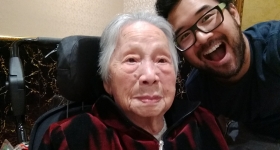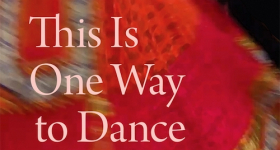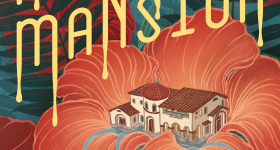HORROR IS A FEELING oft expressed but rarely defined. Entire genres of literature, film and arts have taken on this moniker, but the means of generating horror and why humans find things horrible is often left unsaid. Horror is seemingly such a universal human emotion that one need not describe it. "That was horrible!" is descriptive enough.
Images evoking horror have changed over time, mostly due to desensitization. Trains barreling at the camera in the Lumieres' Arrival of a Train or a bandit shooting a pistol at the audience in Edwin Porter's The Great Train Robbery evoked gasps from audiences at the turn of the 20th century, but today's moviegoers watch Quentin Tarantino's samurai-sword wielding woman decapitating people with delight instead of disgust in Kill Bill Vols. I and II.
But contemporary audiences have not been desensitized to all horror, just particular stimuli they have become accustomed to. And they constantly seek newer and greater thrills in movies to evoke feelings of horror. Scenes of grisly violence must be perpetually more intense to satisfy these desensitized audiences, as seen in the Saw series. With the bar set so high for cinematic horror, what can possibly shock and truly horrify an audience well versed in contemporary violent film?
On April 16, 2007, Seung-Hui Cho killed 32 people, wounded many others, and eventually killed himself in the most fatal shooting in modern American history. Two days later, NBC News received a package from "A. lshmael," which was a "multimedia manifesto" sent by Cho in between shootings. NBC aired Cho's self-made videotapes, as well as his writings and photographs taken before the shooting.
The response to the media was vehement and overwhelming; people were horrified. In the aired footage, Cho sat in front of the camera, ranting and raving nonsensically. But the reality of Cho's deadly rampage made his words impossible to ignore: "I didn't have to do this. I could have left. I could have fled. But no, I will no longer run. It's not for me. For my children, for my brothers and sisters that you [fucked], I did it for them ... When the time came, I did it. I had to."
Americans have a dual fascination and revulsion with violent crime, especially with serial killers. They want to know why it happens and who could have done such a thing. Some identify with the killer as a means of understanding the killer's motives and making meaning out of violence and death. But Cho's motives are largely inexplicable. Identification with an inscrutable and unfathomable character inevitably leads to a confrontation with the ultimate producer of horror: the unknown.
My reaction to the Cho manifesto illustrates this inability to comprehend the meaningless. As a fellow male, English major of Asian descent who has suffered from mental health issues, I thought I could decipher his actions, but to no avail. I watched every video, pored over every photograph and read each one of Cho's plays hoping to find some motive behind his senseless actions. Desperate for meaning, I even repeatedly listened to Collective Soul's Shine (a song that Cho purportedly played in his room on repeat), expecting some epiphany or insight into his interiority. Of course, there was nothing. I remained horrified, unable to understand his murderous actions.
Some Asian Americans around me felt the need to identify with the killer and, in the absence of coherent meaning, question their own guilt. In an editorial in Hardboiled, an Asian American magazine produced by University of California, Berkeley students, Kevin Lee wrote: "In that mug shot slapped on publications nationwide is a young Asian American student, bespectacled, morose, downtrodden. His somber eyes and tightly pursed lips convey constant, everlasting tension. He has trouble relating to others. He's angry at the world. He views writing as cathartic. I keep looking and looking at the photo, and one truly sobering thought pushes its way into the forefront of my mind: Seung-Hui Cho is some twisted reflection of myself."
When an image or an event escapes our basic intellectual or psychological understanding, we are horrified to the point that we question our own ethical boundaries-if there is neither a meaning nor motive for his actions, then what is it that makes Cho different from you or me? Just as identifying with the victim triggers a fear of one's own death, identifying with an inscrutable villain produces a fear of one's own potentially violent nature.
In this context, horror is a function of our fear-fear that we are without morals, that we are inhuman. What Cho's videotaped confessions reveal is our particularly intense horror reaction to those who are utterly desensitized; we react in horror to an individual who does not feel horror. Questions such as "How could someone do such a thing?" or "What made him into this?" become particularly salient. And in identifying with these individuals, we are horrified that we in turn could become desensitized as well.
Horror connects us with our culture and society. Maintaining a healthy horror reaction is deemed necessary to our interconnectedness with humanity, and those unable to feel horror are considered sociopaths. Horror is humanity's insistence that life's end must have meaning, making the greatest cause for horror the lack thereof. The greater fear is that we will lose all of our fears.
Jason Coe is Hyphen's film editor. He works in Beijing for an international start up corporation.









Comments